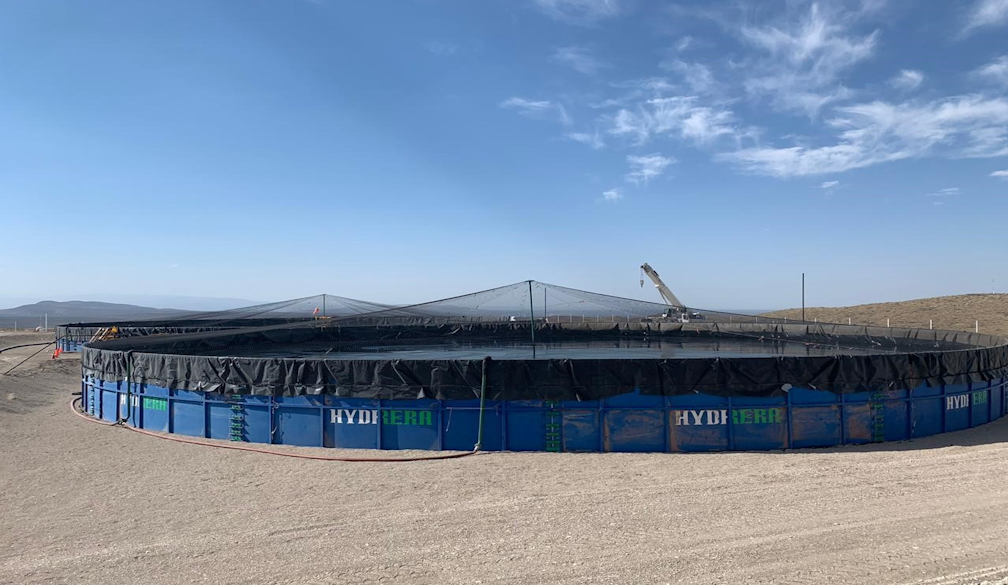Experts tips to industrial water management and water reuse

Industrial water management encompasses a wide variety of processes, from the collection and distribution of raw natural water for use in production plants and other facilities to the reuse and conditioning of wastewater for additional purposes. It is vital for businesses to understand industrial water management methods in order to create an efficient system that contributes positively to their bottom line as well as benefiting environmental sustainability initiatives. In this blog post, we'll explore some expert tips on how you can effectively manage your industrial water resources while ensuring both cost savings and sustainable practices are achieved.
Identify sources of water usage and identify potential for reuse
Water is a precious resource that we rely on daily for a multitude of activities. From showering to making coffee, we use water regularly without much thought on where it comes from. However, it's important to understand the sources of our water usage and how we can potentially reuse it. Sources of water usage can include daily household activities, such as laundry and dishwashing, as well as outdoor irrigation and industrial processes. By identifying these sources and potential opportunities for reuse, we can not only conserve water but also save on water bills and contribute to a more sustainable future.
Implement an efficient water management system to reduce water waste and costs
Water is a scarce resource and efficient management is crucial to ensure its availability for future generations. Implementing an efficient water management system is not only environmentally responsible, but it can also lead to significant cost savings for businesses and households. By identifying areas of high water consumption and implementing measures to reduce water waste, we can ensure that water is utilized in a sustainable and responsible manner. From fixing leaky faucets and using water-efficient appliances to harvesting rainwater and recycling greywater, there are many ways to reduce water waste and save money. Let's work together to implement efficient water management systems for a greener future.
Establish a monitoring program to track water use and identify trends
As water becomes an increasingly precious resource, it's more important than ever to keep a watchful eye on how much water we use and how that usage changes over time. By establishing a monitoring program, we can track water use patterns and identify potential areas for improvement. With the help of data analysis tools, we can uncover trends that might otherwise go unnoticed and make proactive decisions to conserve this finite resource. Whether you're a homeowner looking to reduce your water bill or an industrial facility manager committed to sustainable practices, a monitoring program is an essential step towards a more water-conscious future.
Develop a water-use reduction plan that involves all employees
Water is a precious resource that is becoming increasingly scarce in many parts of the world. As a responsible business, it is our duty to ensure that we are doing everything we can to minimize our impact on the environment. To that end, we are developing a water-use reduction plan that involves all employees. Each and every member of our team will play a role in identifying ways in which we can reduce our water usage, from turning off taps and reporting leaks to using low-flow fixtures and implementing drought-resistant landscaping. By working together and taking responsibility for our water usage, we can make a real difference in preserving this vital resource for generations to come.
Invest in proper technology and equipment to make the most efficient use of water resources
As a society, we've become increasingly aware of the importance of water conservation. With water resources becoming scarcer by the day, it's vital that we take steps to make the most of what we have. One way to do that is by investing in proper technology and equipment that can help us use water more efficiently. By implementing tools like efficient irrigation systems, low-flow fixtures, and smart water meters, we can conserve water and reduce waste. Not only does this help us protect our natural resources, but it can also save us money in the long run by reducing our water bills. It's time we take the necessary steps to invest in technology that will allow us to make the most of our precious water resources.
Incorporate innovative techniques such as rainwater harvesting, drip irrigation, etc. for industrial purposes
The world is rapidly changing and so are the needs of industries. This is the time to incorporate innovative techniques such as rainwater harvesting and drip irrigation to ensure more sustainable industrial practices. Instead of endlessly relying on municipal or groundwater, industries can opt for rainwater harvesting and collect water for their operations. Drip irrigation, on the other hand, allows for precise watering and reduces water waste. By implementing such techniques, industries can not only save water but also reduce their overall environmental impact. It's time to leverage technology and create a more sustainable future for our industries.
Educate employees on how to conserve and reduce water use at the workplace
Water is one of our most precious resources, and it's critical that we all do our part to conserve it. At the workplace, there are many easy ways to reduce water usage without sacrificing comfort or productivity. For example, fixing leaks, turning off faucets when not in use, and using low-flow toilets can all make a big difference over time. Additionally, it's important to educate employees on the importance of water conservation and simple steps they can take to reduce their water use both at work and at home. By working together, we can all contribute to a more sustainable future for ourselves and generations to come.





